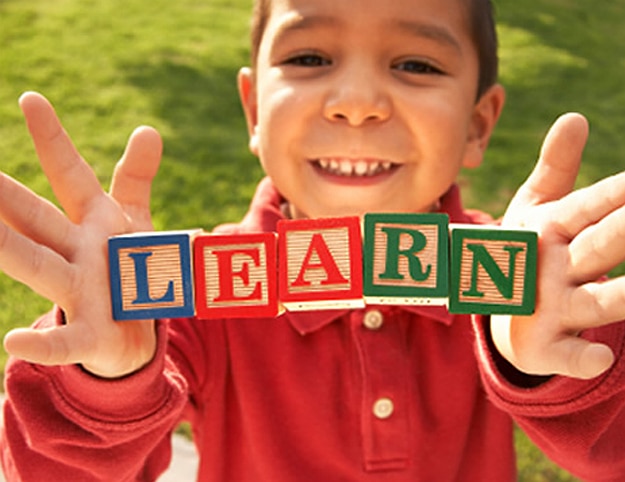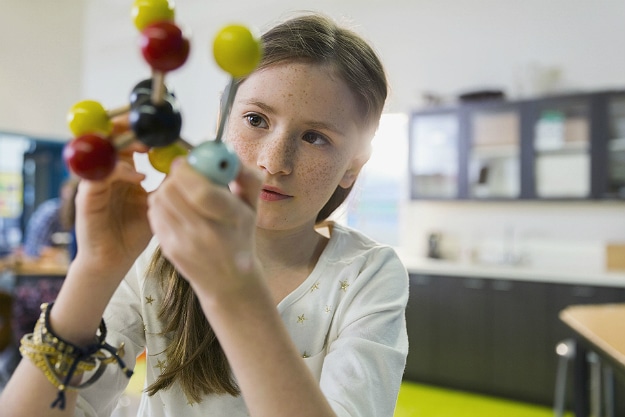The phrase “cognitive development” may seem a scary one when it comes to discussing your child’s progress and milestones. Anything involving a baby’s emerging intellect and the steps he or she will take as they come to understand the world must be far beyond a parent’s control, after all.
As academics analyze children’s responses to morals, social interaction, reason and emotional response, even deeper insight is gathered as to how infants and babies learn about the world. Indeed, one glimpse at the latest psychological studies involving cognitive development and you would be forgiven for assuming that only an expert could understand your child’s needs. However, you could not be further from the truth.
Cognitive development refers to the construction of thought processes and the ways in which your baby will come to understand the world and their role within it. Memory, problem-solving, language, decision-making and physical co-ordination are all discovered via cognitive development, and it’s your job as a parent to guide your baby to each and every one of these milestones – and it’s far less daunting than you might think.
While much of your baby’s cognitive development will occur naturally as he or she grows up and learns how to interact with the world, moms and dads have an important part to play. Concepts such as emotion, familial relationships and reason are often learned from those around us, and your baby will take your lead on a number of issues.
Additionally, providing your baby with a stimulating environment and dedicating your time to his or her development will strengthen your bond as parent and child, and ensure that your little one is able to make the most of the world. No amount of money can buy the love that you share, so nurture it with tenderness and dedication.
Parents’ Checklist: Important Items For Cognitive Development
It’s never too early to begin supporting your baby’s cognitive development. Those first days, weeks and months are crucial to your baby’s progress and should be as enriching as possible. The idea of being responsible for guiding your child through such massive milestones is likely to be a daunting one, but help is at hand. Indeed, ensuring that your child is exposed to a range of colors, textures, sounds and concepts may be far easier than you’d initially thought.
So, where should you start? Your baby’s cognitive development depends upon your love and dedication, and a range of stimulating toys and surroundings. We’ve compiled a handful of these to help you on your way…
Discovering Your Baby’s Body
One of the key aspects of cognitive development is allowing your baby to discover his or her own body, and supporting them as they come to understand how it works. Try tying ribbons to your infant’s ankles and wrists to encourage them to seek their body parts out, or use specially adapted socks and wrist straps that are designed to introduce such concepts. Marvel as your child slowly recognizes that these extremities belong to him or her and that he or she has control over them.
Provide A Stimulating Environment
The environment that you provide for your child should be as stimulating as possible, introducing different colors, textures, shapes and contrasts. Toys such as activity gyms, play mats, mobiles and shape sorters are fantastic, although it’s important to think about your baby’s nursery too; what items have you included that will support cognitive development? What colors, sounds and surfaces will your child experience from the moment he or she wakes up? Luckily, the Internet is filled with baby nursery ideas, while retailers will often coordinate their ranges to ensure that your infant’s room is consistently stimulating. Have a look, and see what inspires you.
Encourage A Love Of Language
Perhaps you’ll feel a little daft discussing the contents of your shopping trolley as you and your baby shop, or wonder whether your baby really understands the many nursery rhymes and songs that you’ve taken to singing to them, but be reassured that you’re doing an amazing job.
Reading with your child, introducing various voice patterns by way of song and rhyme, and simply talking to your baby and asking him or her questions are all fantastic ways to support cognitive development, and will introduce a love and understanding of language long before those first words are spoken. Numerous studies have proven that early communication can boost brainpower and build relationships, so sing to your heart’s content.
In addition, don’t be afraid of reading to your little one from birth – nothing can compare to those moments of bonding as you share characters and stories, and your child will learn a great deal by way of emotional development, action and reaction, and their personal response to situations via the words on the page.
Play games
Believe it or not, games such as ‘peekaboo’, ‘patty cake’, ‘where did it go?’, ‘what can you hear?’ and ‘I spy’ can all be fantastic for your child’s cognitive development, encouraging interaction, communication, action and reaction, and even emotional progress. Learning that you’ll always come back from behind your hands is vital for building trust between parent and child, while the sense of fun created by peekaboo is unrivaled. Discuss the world, how you’re both feeling, and where items are as you play, and prepare to be amazed.
Limit Your Child’s Access To Technology
While technology is indeed a fantastic resource for children, and often integral to certain developmental milestones, a study conducted by the journal JAMA Pediatrics found that those exposed to a myriad of so-called smart toys actually had their progress impeded.
Verbal communication and social interaction are a vital part of cognitive development, yet smartphones and tablets, smart books and talking toys can discourage a child from reaching out to others.
Meanwhile building blocks, toy cars and even empty storage containers can actually provide a similar ‘fun factor’ and enable your child to solve problems alongside yourself or another child.
Imaginative Play
Studies discussed in Psychology Today have proven that imaginative play is a vital component of childhood development. As part of your baby’s cognitive progress, it’s essential to allow them to discover the world at their own pace.
Introduce imaginative play, including dressing up, puppets, home corner toys, and toys from fantasy worlds at an early age; this will allow your child to explore a greater realm of possibilities and develop a love of language, as well as nurturing their fascination with the world.
Cognitive development is vital during a child’s early months and years, allowing him or her to understand exactly how the world works and where they fit in. From coordinating their body parts to do what they want to communication, imagination, and skills involving logic, your baby’s development will come as something of an adventure – to both them and you.
Rather than fearing milestones or your role in their accomplishment, treat each new day as another leg in the journey towards self-discovery, and marvel as your child comes to grips with concepts under your guidance – your little one is becoming a not-so-little-one at a fast rate of knots, and it’s so, so essential not to miss a moment.
Embrace your baby’s development, and marvel in the world together. You’re guaranteed to see things a little differently with your child as your teacher.


COMMENTS